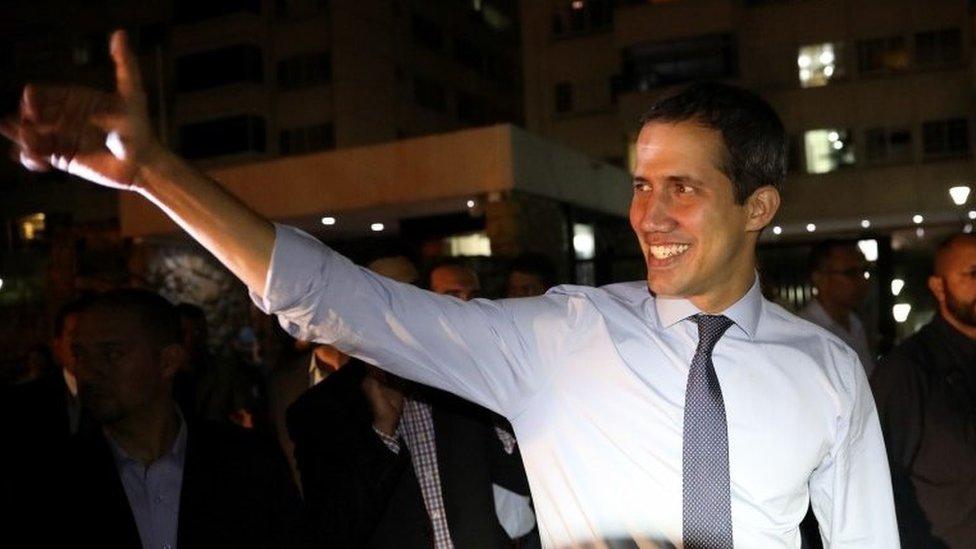Venezuela crisis: Frustrated opposition await next opportunity
- Published
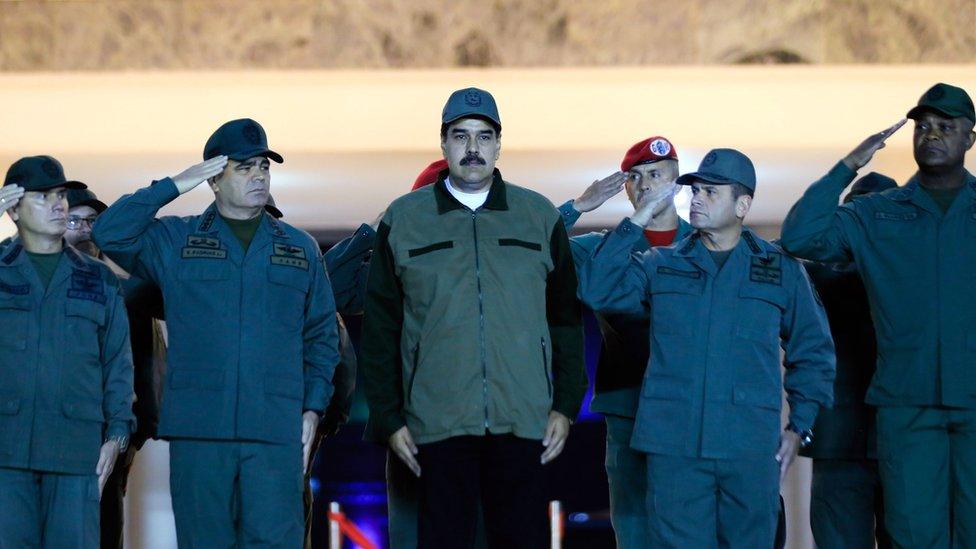
Mr Maduro says he still has the support of the armed forces
Venezuelans woke up to a show of military strength broadcast on national TV after two days of opposition protests.
President Nicolás Maduro, surrounded by troops at the Caracas military base, held forth on the theme of absolute loyalty amidst claims that some in the high command were prepared to turn on him.
"To the traitors, detain them," he intoned. "To the coup plotters - reject them and detain them as well. And to the armed forces: (they are) united, cohesive, under the command of our laws and constitution."
The defence minister, Vladimir Padrino, also weighed in.
Trump administration officials had said he'd been in negotiations with the opposition but, if so, not anymore. He rejected those who sought to "buy us with dishonest offers" as though military officers were "mercenaries."
At Altamira Square traffic flowed as usual and people sat quietly on the benches enjoying the breeze. There was no sign that this had been the main gathering point for opposition protesters the day before.
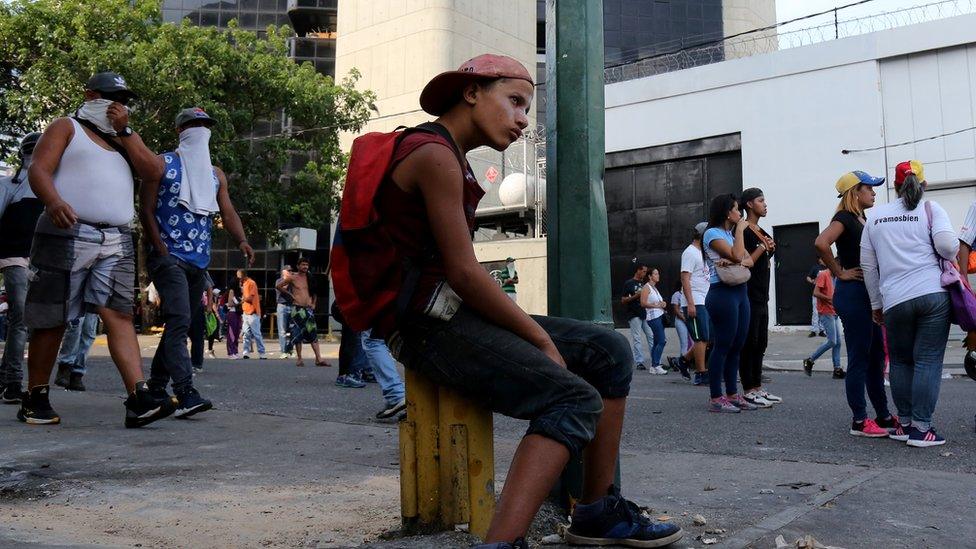
Altamira Square was the scene of clashes on Wednesday
"I am here because I thought there would be another march," said Nelson Gavidia, an appraiser of irrigation systems. "I left my work and I'm sitting here but everything is back to normal as if nothing happened."
"We need to be out on the streets to get the country's liberty," he told us. "We want to be the Venezuelans that we were before."
But that prospect seemed even more distant now with the opposition in retreat. The main leader Leopoldo Lopez took shelter in the Spanish embassy after winning brief freedom from house arrest, and the self-declared interim president Juan Guaidó was nowhere to be seen.
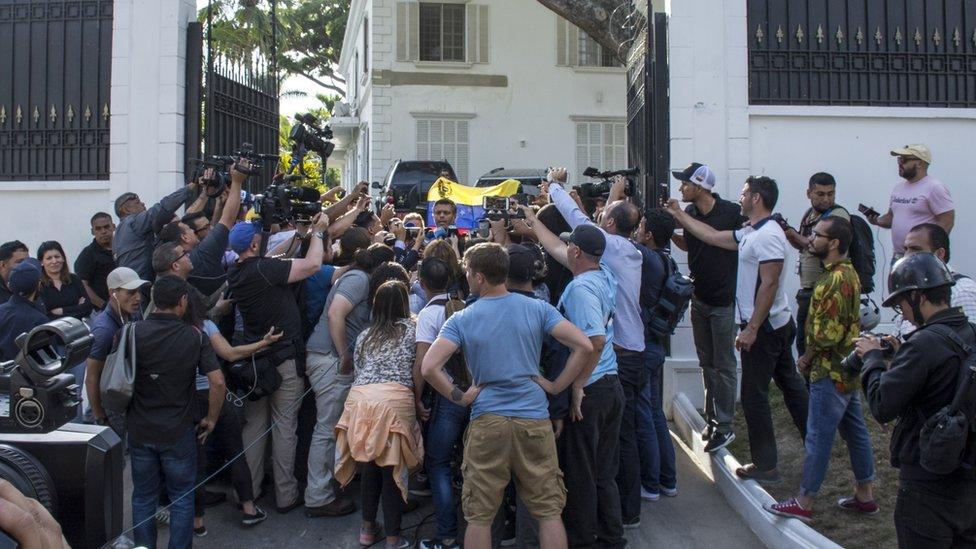
Opposition leader Mr Lopez has taken refuge in the Spanish embassy
Mr Guaidó has admitted that he didn't get enough support from the military for his call to rebellion earlier in the week. Now he's talking about a general strike.
It's not clear, though, how that would play out in the midst of this economic crisis where people are scrounging for every dollar they can find, and the state controls the big industries.
"You can't just hope that public workers will say: I'm against you," said one man who identified himself as Raul. He was watching to see what both sides would do.
"The government is preparing itself in an intelligent way for what is coming," he said, "as it's always done in the past. The opposition unfortunately, is still all over the place. Guaidó has good intentions but I'm not sure he's doing the right thing. I am more radical, I believe… that a military intervention is necessary."
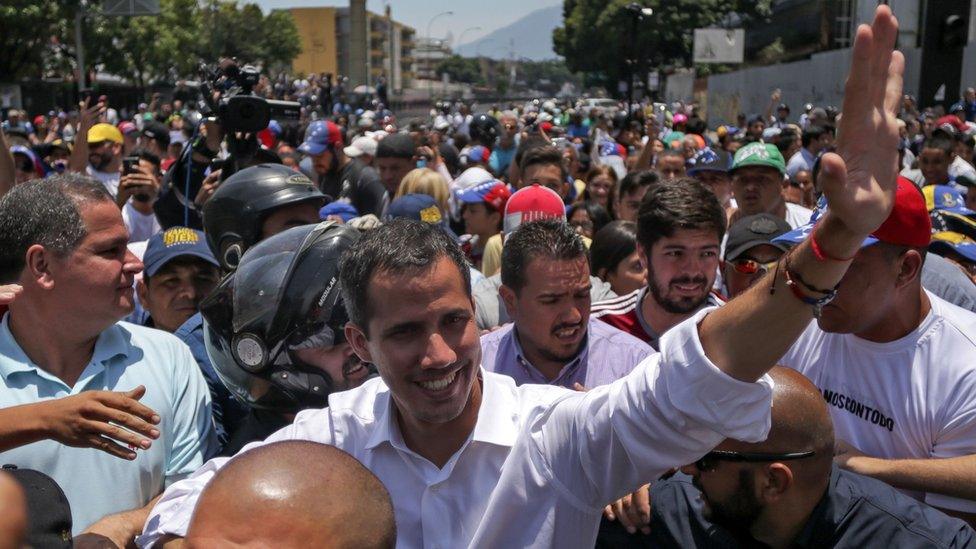
Mr Guaidó has urged troops to rebel and is now calling for public workers to strike
Students at the Central University of Venezuela weren't ready yet to give up on civil protests, including street theatre.
Art Student Itzia Netsi told me some were going to dress like dead people and lie in the street to highlight the dangers of demonstrating against this government.
She and others had defied their professors and refused to come back to class: "People died, there were gun shots, and you tell me to go to classes?" she said. "Come on! How can I think of my future when people are being killed in the streets, what if tomorrow it's me?"
She grasped for hope at the sight of at least some military personnel who'd stood with Mr Guaidó as he'd called for others to defect. We need that, she said, "because you can't win a war without guns."
Police armed with tear gas cannisters stood by as the students surged into the street and blocked an intersection. "Police listen to us", they chanted, "unite with us for the fight."
- Published5 August 2024
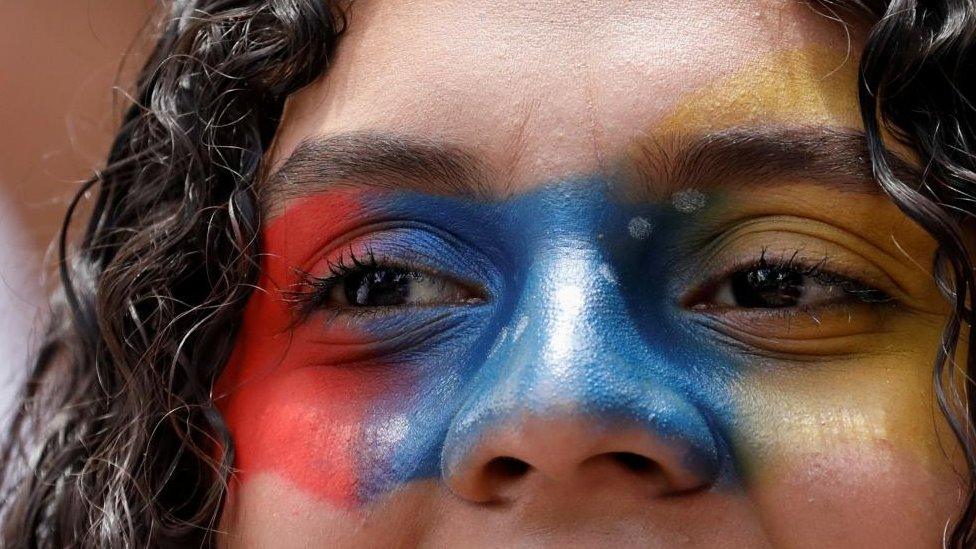
- Published1 May 2019
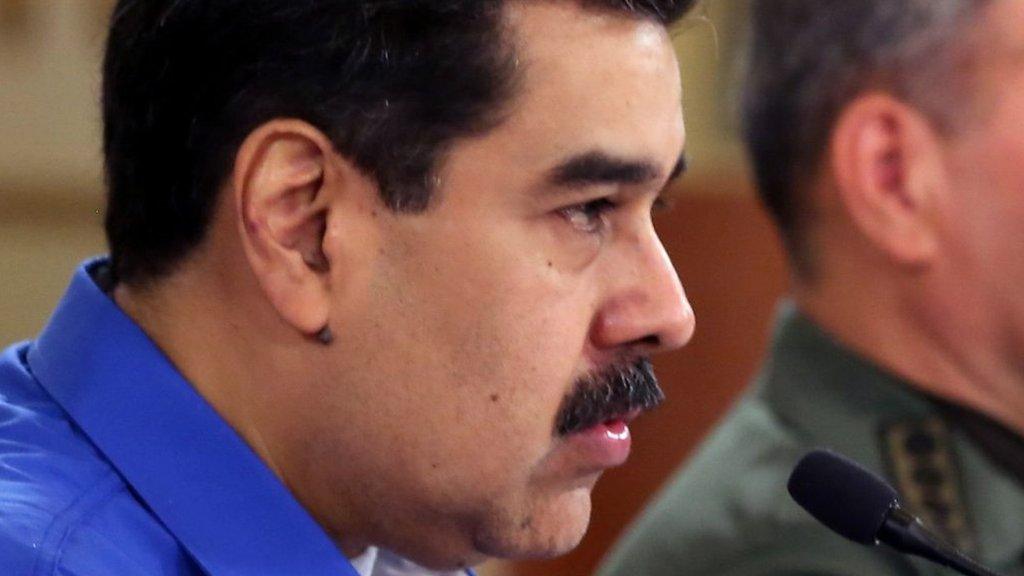
- Published28 February 2019
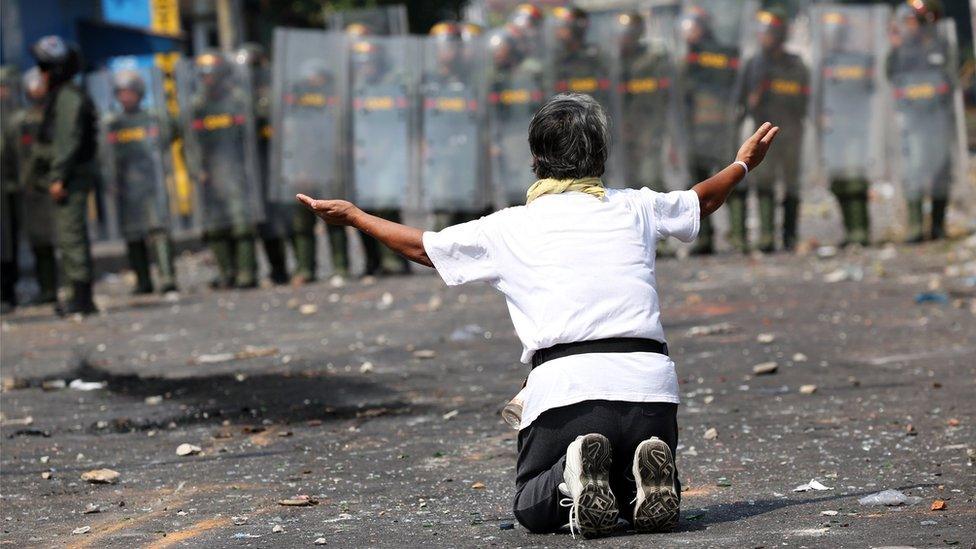
- Published28 January 2019
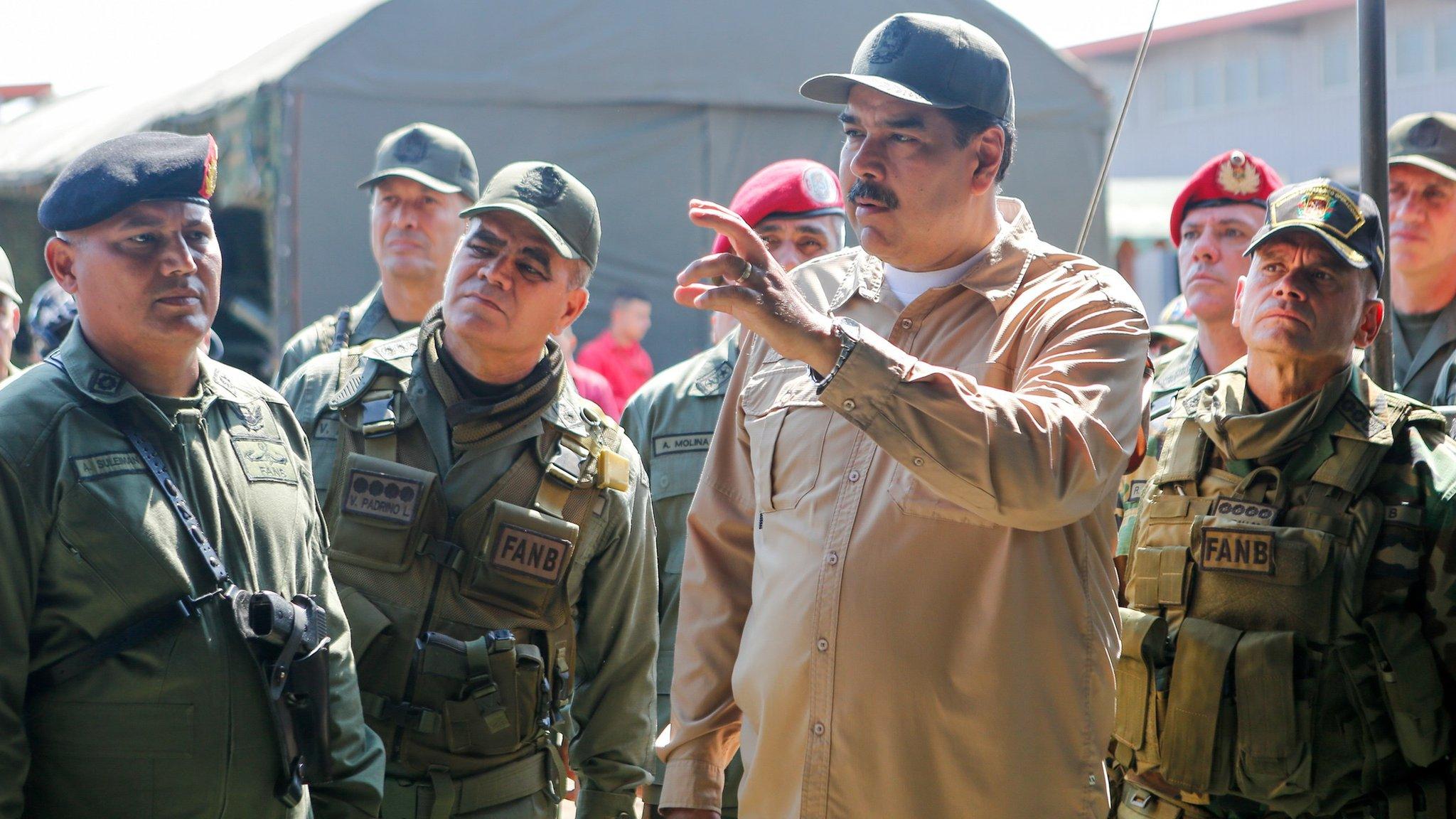
- Published30 April 2019
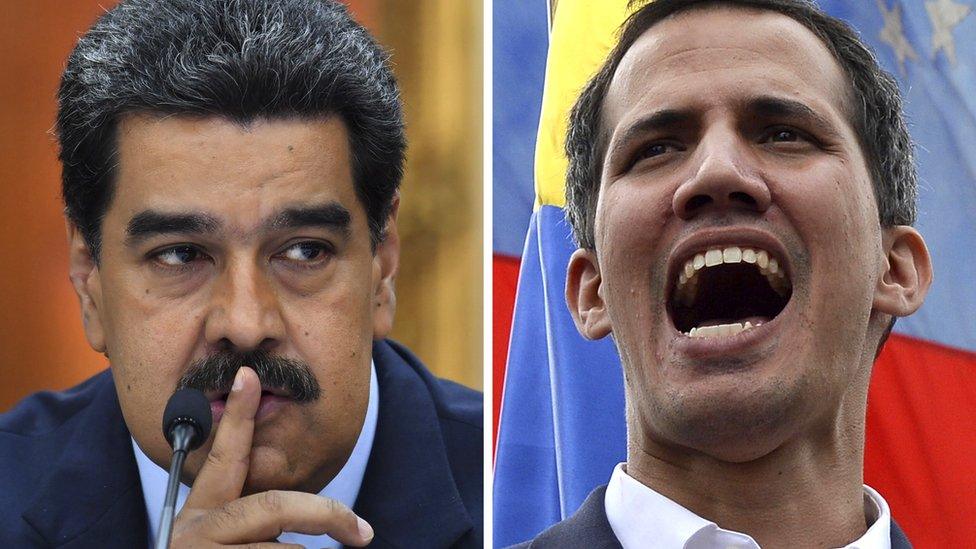
- Published12 August 2021
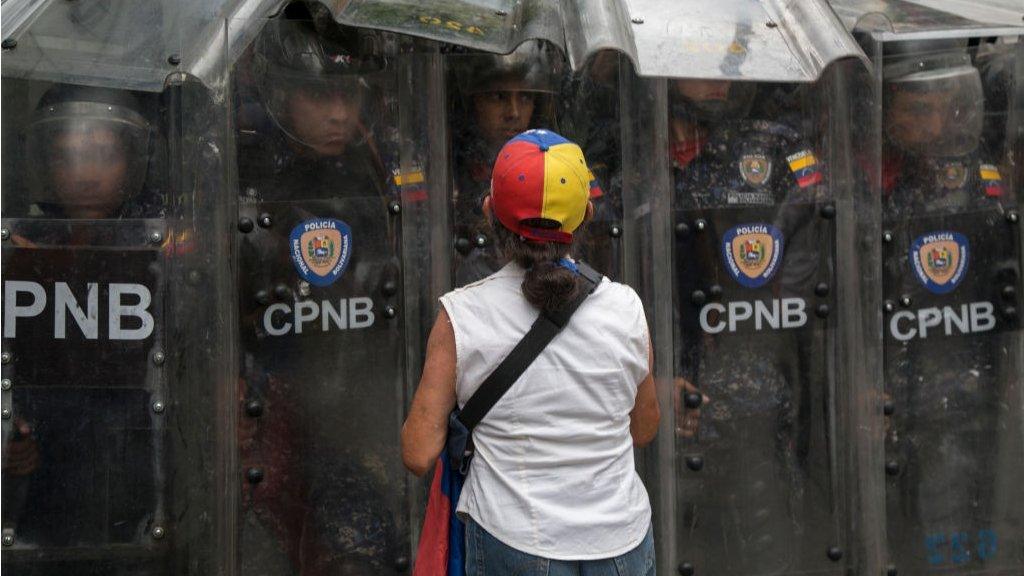
- Published4 February 2019
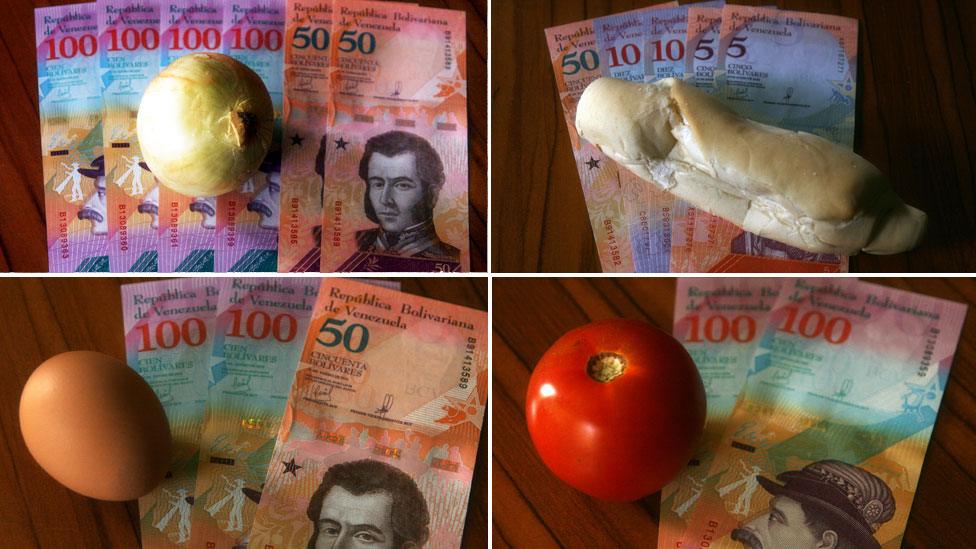
- Published30 April 2019
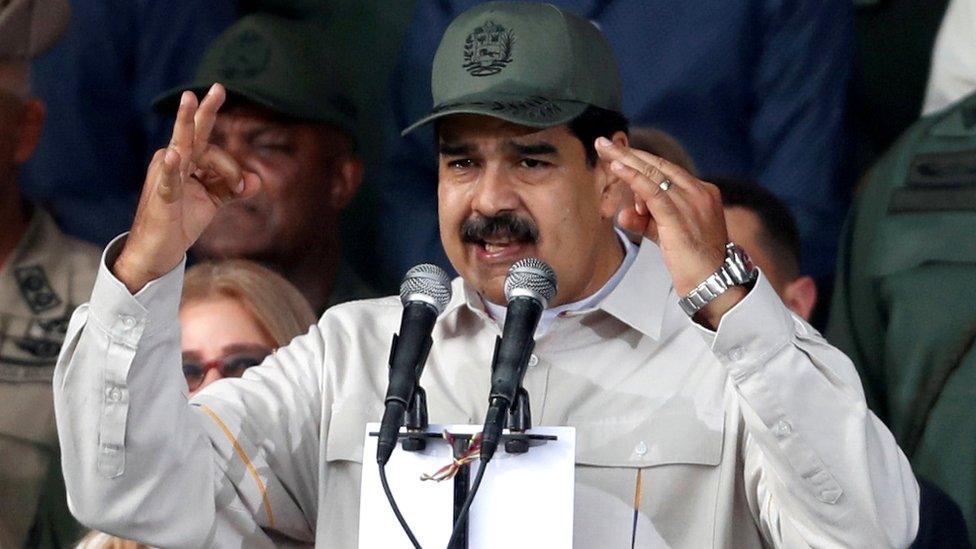
- Published3 April 2019
